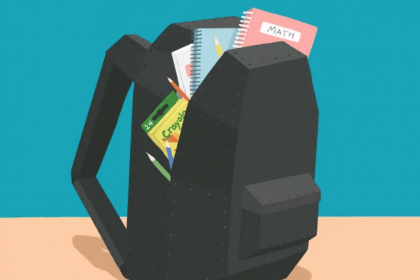Last Updated: Mar 27, 2020
For Americans coping with the impact of the coronavirus pandemic, tax relief is in sight: The Internal Revenue Service is extending the April 15 deadline for tax payments to July 15. Announced in a Tweet last week by Treasury Secretary Steven Mnuchin, the announcement follows an earlier decision to delay the payment deadline in response to the COVID-19 pandemic.
Customarily, U.S. tax returns must be filed, and any taxes owed must be paid by April 15 every year. This year, however, the COVID-19 outbreak has upended workplaces, marketplaces and the economy. In response, the Trump administration has declared that most individuals and businesses will be allowed to delay paying their federal tax bills, penalty-free, for 90 days as part of an emergency relief plan.
Earlier this week, Mnuchin said that a 90-day deferment of tax payments could provide $300 billion of liquidity, which could aid households and businesses in coping with the financial fallout from the novel coronavirus.
FAQs: What the Tax Extension Means for Americans

With April 15 coming up fast, some taxpayers are no doubt breathing a sigh of relief that they’ve got some extra time to file and pay 2019 taxes. Learn what this extension could mean for you, and talk to your tax advisor if you still have questions.
Who can delay income tax filing and payments?
As of March 21, all taxpayers and businesses that would have customarily filed their federal tax returns by the traditional April 15 deadline have been granted a 90-day extension for both filing and payments. At first, the extended period was for payments only, but it was recently extended to filing as well. This means you’ll have until July 15, 2020, to file and pay your 2019 federal income taxes.
Will I incur penalties for a delayed payment?
Given the unprecedented circumstances, individuals and corporations will not be subject to payments of interest or penalties as long as they file and pay by July 15.
What if the July 15 deadline still doesn’t give me enough time?
As always, taxpayers facing difficulties filing on time will have the option to request a six-month extension. In past years, the six-month extension meant that those seeking the extension would still need to file by October 15, and as of late March, that is still the extension deadline. The extension gives you longer to file, but not pay. You’ll still incur penalties and interest if you don’t pay by July 15. This could change, so it’s essential to check with the IRS periodically to see if further changes have been made to these dates.
I’m expecting a refund. Should I wait until July 15 to file?
Individuals and companies expecting a refund should file as soon as they can. They don’t need to wait until July 15 to file and get their money. As of late March, the IRS is continuing to process returns and issue refunds.
How does this extension affect my state income tax return?
Your state may follow the federal government’s lead and also offer extensions to taxpayers. Consult your state tax authority for updates regarding any changes to due dates. As of March 24, some states have not extended their deadline. Others, however, are following the federal model while some states are setting their own.
4 Tips for Leveraging Tax and Other Payment Extensions

The COVID-17 pandemic continues to unfold, but during this time of uncertainty, your taxes and other financial obligations can remain manageable with these four tips.
- File online.If your taxes haven’t yet been filed, you may be able to file them for free via the IRS Free File program or with certain tax providers, including H&R Block and Intuit.
- Look into your refund status.Once your taxes are filed, you can check your refund status via the IRS refund tracking page. Updates will be available after 24 hours if you e-filed; for mailed returns, your status will be available within four weeks.
- Follow announcements from financial institutions.Bank and credit issuer websites have already begun posting company responses to the COVID-19 pandemic. Given the global crisis, some may be willing to waive overdraft fees or allow you to defer payments on loans and mortgages.
- Ask for payment extensions.If you’ve had work hours reduced, are working in an industry impacted by the coronavirus, or if you’ve been sick with the coronavirus or are taking care of someone who is, contact your creditors to discuss adjusting payment schedules and waiving fees.If you are expecting a tax refund, get your money now and put it toward what you need most at this moment. If you’ll owe taxes, rest assured that now you have extra time to pay them, and for now you can put that money toward more urgent financial issues.

As news on the coronavirus changes by the hour and we remain so unsure about when the pandemic will end, our lives can feel uncertain and things can feel out of our control. While much of this crisis is out of our control, how we deal with it, including how we deal with our finances, is within our control. Taking control of your finances during this time can lend a sense of hope, stability and continuity.
Published at MoneyGeek.




